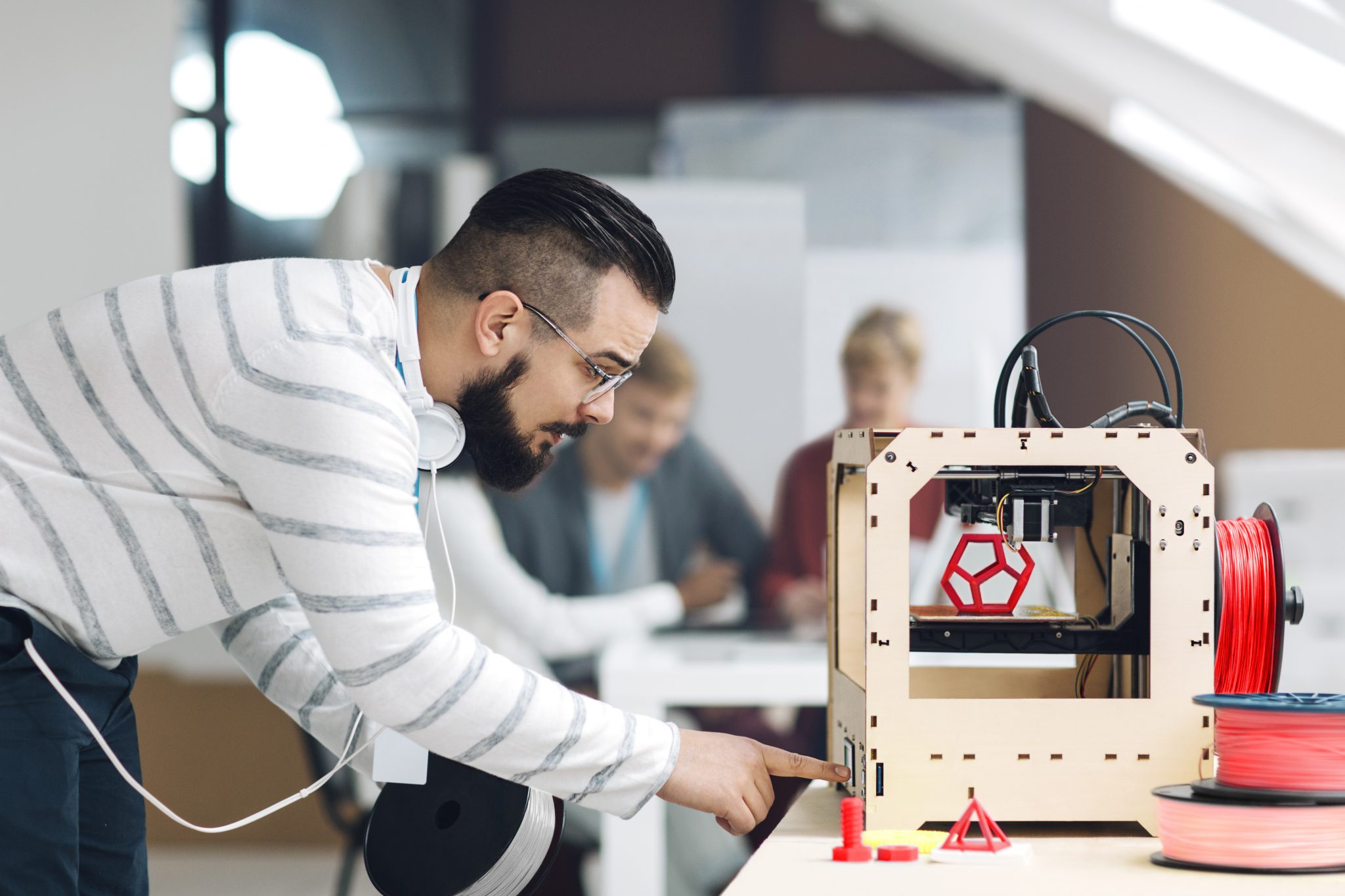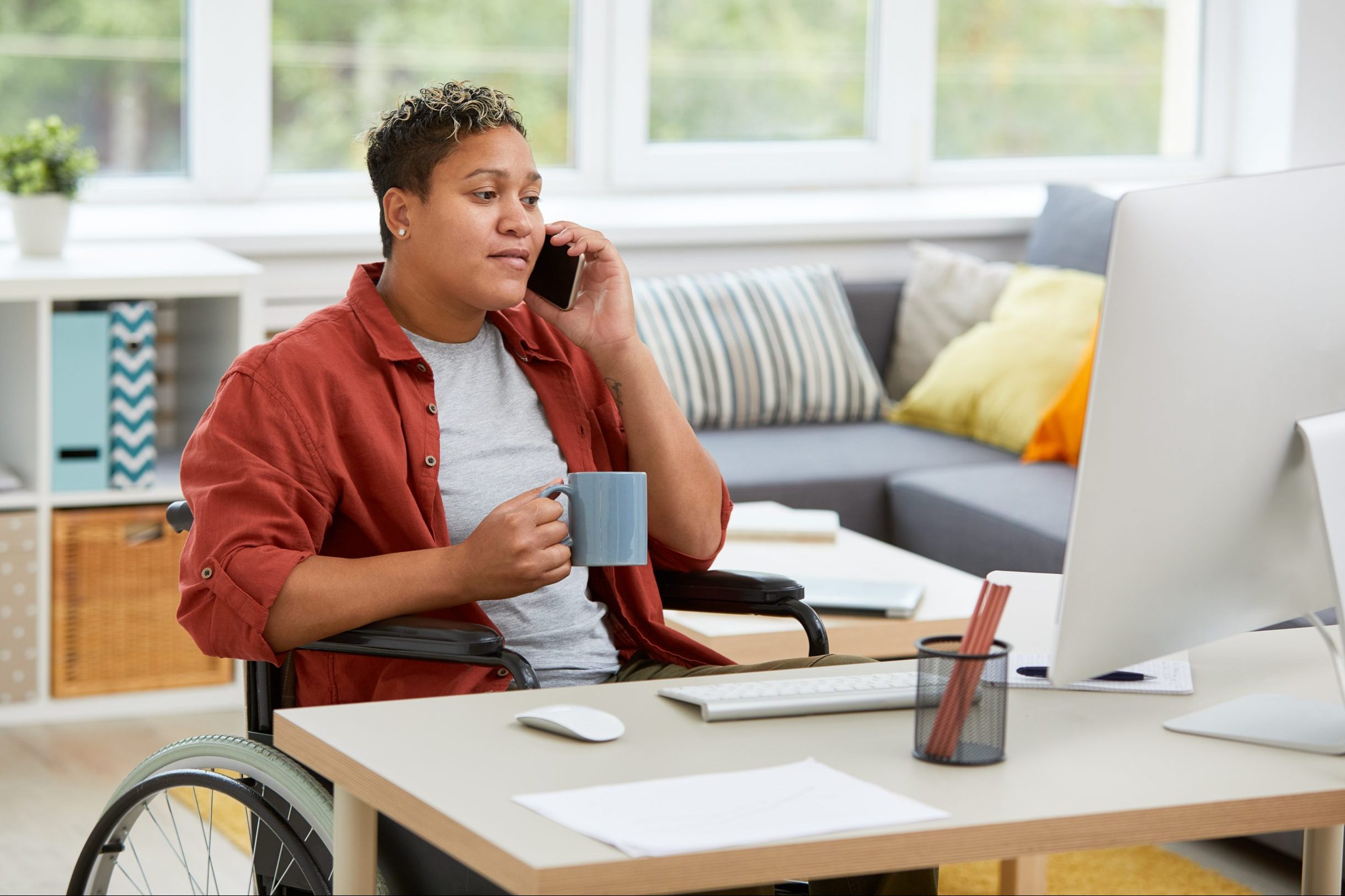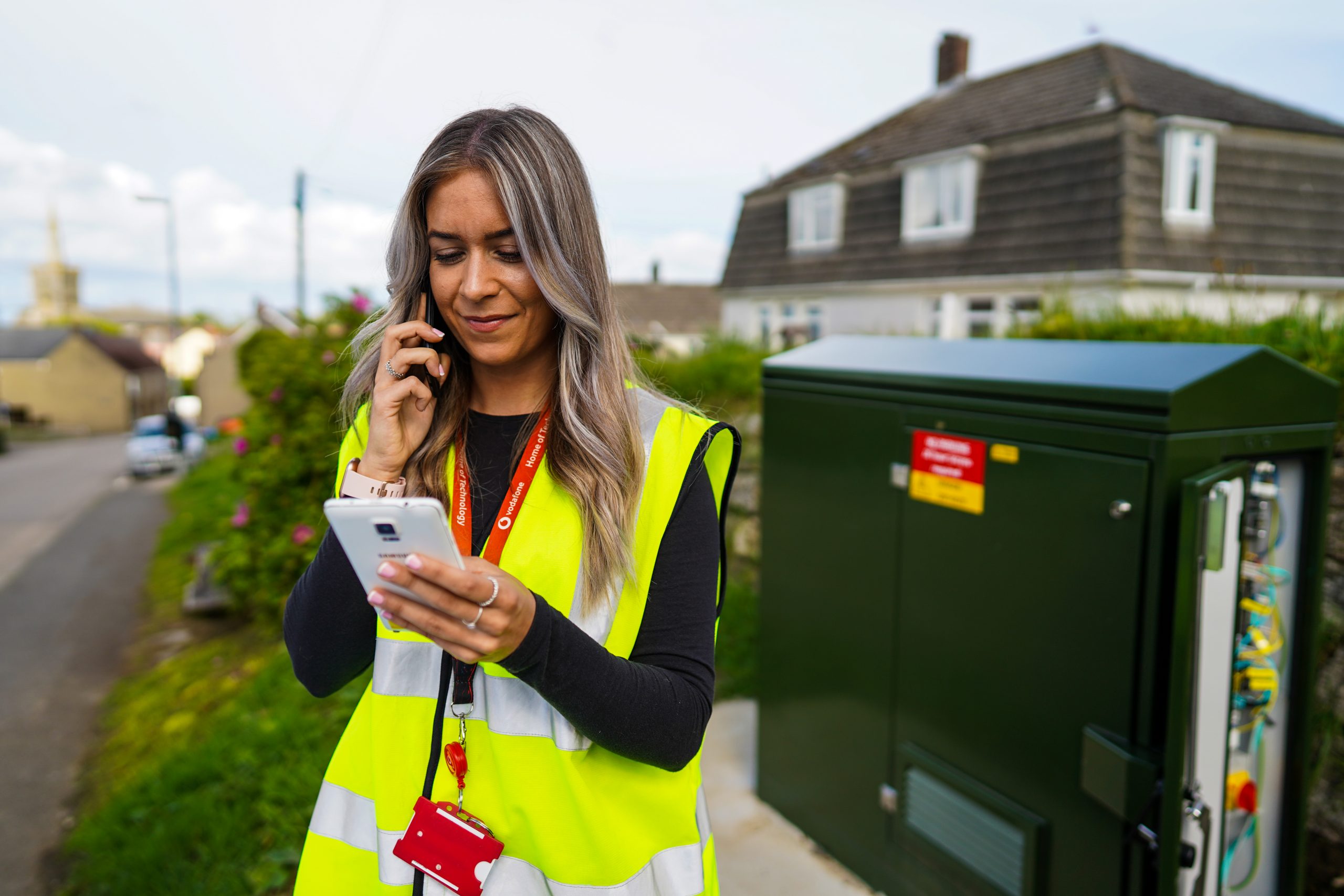
On 1st July we will welcome our first batch of Vodafone Digital Degree students. They will complete 10-week summer placements in our Digital and Technology teams in Newbury and London.
By Neil Blagden, Director of Digital and Commercial Operations, Vodafone UK
On 1st July we will welcome our first batch of Vodafone Digital Degree students. Digital Degree students benefit from fully-funded university tuition fees, and receive a competitive salary throughout the programme. This summer, Digital Degree students will complete 10-week placements in our Digital and Technology teams in Newbury and London.
Created to develop digital talent at university level, the Digital Degree is a partnership between Vodafone and the University of Birmingham. It combines a Bachelor of Science degree in computer science with a technology apprenticeship at Vodafone. In the autumn of 2018, we accepted 16 Digital Degree Apprentices from the University of Birmingham into the programme.
Throughout their summer placement, each student will work on a specific project and will have plenty of responsibilities. Following that, and a 12-month industrial placement in their third year, we will offer Digital Degree students a role when they graduate in 2022. These roles include software testers, front end or back end developers, data analysts and artificial intelligence (AI) specialists.
Supporting our Vodafone Digital Degree students on the job
During their placements, we will provide regular reviews and feedback to help students progress. In addition to their line manager, Digital Degree students have a Business Point of Contact (BPOC) from the technology side of the business. The BPOC can answer technical questions or provide insight into what it’s like working in digital and technology.
To help everyone get familiar with the workplace environment and culture, each student has a “Vodafone Buddy” – a Vodafone staff member who is there to help with all sorts of everyday questions, from the location of the canteen to transport advice. A designated programme manager from our HR Department is also available to answer workplace queries.
Another advantage of the Digital Degree programme is that it enables students to meet and network with other young people in our Digital and Technology teams, as well as across the business. We have a thriving Graduate Trainee and Technology Apprenticeship programme, so there are plenty of opportunities to build new connections with their peers.
Applying for the Vodafone Digital Degree
Applications for the Vodafone Digital Degree open this September. Students interested in joining us in 2020 will need to apply via UCAS. You can visit our careers site to find out more.
If you’d like to know what current Digital Degree Apprentices think of the programme, read on!
Meet Heather

Tell us a bit about yourself – what got you interested in tech and computer science?
My interest in technology stemmed from gaming. Since my sixth form didn’t offer computer science, I couldn’t take it at A Level. Gaming helped me to get to know other like-minded people who were doing computer science.
I created gaming servers in the past, which allowed me to experiment with configuring code, and I also designed websites and built my user experience skills. I’m interested in the design or front-end side of computer science, and I want to go further with building attractive websites and apps from scratch, as well as using technology for entertainment and business.
Why did you choose to apply for the Vodafone Digital Degree Apprenticeship?
I didn’t want to miss the opportunity to study computer science while getting experience using technology in a real-world business. Uni has stretched my skills and programming range, I’ve really enjoyed learning completely new content in a sandbox environment. Vodafone understand how important having a good uni experience is, and we get the full degree, just like other students who aren’t on the apprenticeship.
I also really enjoy working with protocols and creating polished, design-focused work, so being able to work at Vodafone this summer will allow me to enhance these skills.
What is a typical day for you like?
We have a few hours of lectures each day, and twice a week we have lab sessions, either for programming assignments or for mathematical or logical exercises.
Each semester we typically have three modules to study, but in our first semester we took Business Organisation and Management, and Financial Analysis plus two computer science modules.
In the first semester, students can usually pick one module of any course to study. This is where our business modules fit in. I thought this was great, as it meant we were preparing for our summer placements early while not missing any core computer science. Due to our flexible timetable there isn’t a standard day. We can program for assignments after a day of lectures, or in between, as the timetable isn’t packed.
What have you found most interesting or exciting about your coursework this term?
A lot of assignments are made to push you further in your coding ability, and none have been easy – it’s fun and challenging. The programming-based assignments seem difficult at first, though it’s exciting when the problem eventually unravels.
The assignments are really good at helping you to learn skills you weren’t strong on, or introducing us to new concepts such as genetic algorithms, which most of us never knew how to do before. Some parts of the mathematical concepts of computer science were challenging to understand, but it was interesting to learn fundamental concepts that allow computers to work. Proving fundamental mathematical theorems was difficult, luckily we had exercise classes that helped.
What advice would you give to other A Level students wondering if the Vodafone Digital Degree Apprenticeship might be right for them?
If someone is contemplating doing this degree I would definitely tell them to apply. I’m very grateful to have this opportunity as I think the University of Birmingham is an amazing university and it was my first choice.
The apprenticeship placements to not hinder the university experience at all, you get to enjoy student life and more. Vodafone is a leading company and is focused on technology; working here as an apprentice will really give your future in technology a head start.
I’ve made a lot of friendships so far, and being part of Vodafone has led me to meet even more people, and become part of a community.
In terms of the placements, I’m going to the London office and I can’t wait to get started. I’m really excited to get to work in an office in the city, all while being a full-time student at Birmingham.
Meet Joseph

Tell us a bit about yourself – what got you interested in tech and computer science?
I first became interested in Computer Science when choosing my optional subjects for GCSE. I didn’t know what to put down as my final choice, and luckily my friend convinced me to go for Computer Science. It quickly became my favourite subject and the only choice for me to study at University.
Why did you choose to apply for the Vodafone Digital Degree Apprenticeship?
After Sixth Form, I thought about either going to university or finding a Computer Science apprenticeship. When I received the email from Birmingham University about the Vodafone Digital Degree, it was clearly an amazing opportunity, providing the best of both worlds. Birmingham was my first choice university to study my chosen subject, and the Digital Degree also offered the chance to work for a well-known global company, so it was perfect for me and I had to apply.
What I especially like about this partnership between Birmingham and Vodafone is that I’m left to concentrate on my studies during term time like any other student, which gives me the full university experience. I also benefit from not having to find a part-time job, and I don’t have to worry about organising an internship or summer placements.
Has being part of a group of Digital Degree Apprentices made the transition from A Levels to university easier? If so, how?
It was nice to meet a small group of people starting the same course as me before freshers week began, it made the first week or so at university much easier. Many of the people I met on the assessment day and welcome event are now my friends, and next year I will be sharing a house with some of them.
What is a typical day for you like?
Typically, we have a couple of lectures a day on a variety of subjects. These range from Mathematical Foundations of Computer Science to Data Structures and Algorithms. There are also lab sessions where we work on Lego robots programmed in Java or tutorial sessions where we go through exercises on Logic proofs. We have regular assignments and work on these outside of our allocated course hours.
One day I can spend just one hour on campus and on another day I can be on campus for eight hours or longer. Outside of work, the Computer Science Society runs a variety of events such as Board Game night and Trips to Bletchley Park, these are a great way to meet new people and are a lot of fun.
What are you most looking forward to doing when you start your first summer placement at Vodafone in July?
I am going to work in the London office and I am looking forward to applying what I am learning at uni in the workplace. It will be exciting to work on real projects and see a real impact on Vodafone and its customers.
Meet Katie

Tell us a bit about yourself – what got you interested in tech and computer science?
My Dad works in tech, so my family always had access to powerful computers. I’ve had a computer as long as I can remember, but I didn’t really know how to use it to its full extent. I took a GCSE in Computer Science in year 10, and that’s what sparked my love for the subject. Since then I’ve carried out my own research and tried different projects to learn more about the subject, and in doing so I’ve learned just how little I know about the plethora of topics that you can delve into. But that’s why I’m at the University of Birmingham, studying Computer Science!
Why did you choose to apply for the Vodafone Digital Degree Apprenticeship?
I wanted to do a year in industry as part of my degree, but I didn’t know which company I’d want to work with. When this opportunity popped into my inbox, I did a bit of research into careers at Vodafone and realised they would be a perfect company to work for. I didn’t know what I wanted to be when I grew up (I still don’t), but Vodafone covers many areas of computer science that interest me, and I’m sure to find something I love!
What is a typical day for you like?
I get up two hours before my lectures start to have plenty of time before leaving to walk to campus. A typical day might include a 2-hour lecture on AI, followed by a lab to work on an assignment for Data Structures. There could be a meeting with my tutor and then another hour’s lecture. The topics change each semester, which keep you interested, and there are plenty of assignments to keep you busy.
The lectures and tutorials make up the majority of my time; there is plenty of contact time in the course. I usually have breaks between lectures to catch up on notes and chat with friends or go to societies before going back to my accommodation for dinner. The evening might be spent working on assignments or going to a Computer Science Society event such as a games evening.
What have you found most interesting or exciting about your coursework this term?
Most exciting was probably working with Lego EV3 robots in the lab. Robotics is a large area of computer science I hadn’t been able to delve into before, so this was entirely new to me. It’s exciting and challenging given that it sometimes seems like the robot is doing whatever it feels like – in reality it’s just our code going wrong, but it’s hard to test!
What are your future plans?
I’m never going to stop exploring computer science. I’d like to stay at Vodafone for a long time working on different projects, becoming knowledgeable in multiple areas, so I can give back to my teams and Vodafone as I get older. I’m never going to stop learning, the future is exciting!
What advice would you give to other A Level students wondering if the Vodafone Digital Degree Apprenticeship might be right for them?
Make sure you know what you want. The Vodafone Digital Degree Apprenticeship has many benefits, but there are conditions you need to meet. I wanted to go to the University of Birmingham, I wanted to do a year in industry, I went for the Vodafone Digital Degree Apprenticeship because it perfectly fit what I wanted.
You should always strive to be happy, and do whatever you can to ensure you will be happy in the future. Make sure you’re happy with your plan B, and plan C. Rejection is always something we have to think about, not just for this course, but for everything in life. As long as you don’t take it to heart, you should go for every opportunity that comes your way, and be happy no matter the outcome.
Meet Thomas

Tell us a bit about yourself – what got you interested in tech and computer science?
I first studied the programming language Python when I was doing Year Nine Physics. We had covered all the material and so our teacher introduced us to the language with a few basic exercises. I enjoyed the logical thinking required and solving problems sets. Fortunately, Computer Science was added as an option for the first time in my school when I was choosing my GCSE subjects and I really enjoyed it. I then went on to study Computer Science at A-level and am now at the University of Birmingham.
Why did you choose to apply for the Vodafone Digital Degree Apprenticeship?
When I first heard about the Vodafone Degree Apprenticeship programme, I spent some time researching both the company and the programme. I was impressed when I read about Vodafone’s size, the variety of projects I could potentially work on and its future ambition, which all indicated that it would be an exciting company to be a part of, with plenty of opportunities for me to develop and progress.
The summer placement at the end of the first year of my degree, in addition to the twelve-month placement in the third year, appealed to me as this would allow me to gain real-world experience to complement my studies. Clearly, having a job to go to on successful completion of my degree was a significant factor in my decision, as was the financial support provided by Vodafone. With this programme, I can focus on my studies and future success.
Has being part of a group of Digital Degree Apprentices made the transition from A Levels to university easier? If so, how?
Before attending University, I was worried about meeting new people and fitting in. However, on the first day of term, I was relieved to see some familiar faces that I had met during the assessment and induction days, who are now some of my closest mates.
What have you found most interesting or exciting about your coursework in computer science this term? What have you found most challenging?
I found our first Artificial Intelligence assignment both interesting and challenging. The aim was to build a Lego EV3 robot and get it to interact with a set of signals on the ground. It had to follow lines, cross gaps, turn sharp corners, react to colour signals and avoid obstacles. I found it challenging for multiple reasons.
First, none of us had any previous experience with robots, and so understanding the new techniques shown to us took time. We also found it difficult to accurately translate our ideas into physical actions. Transferring the code to the robot to run it was not a quick process, which made finding errors more time-consuming.
What are your future plans?
I enjoy playing games in my spare time and so in the future, I want to develop games as a hobby. I am hoping that the second-year module in which we create a game will provide me with a solid understanding of the basics. This should also help improve my own understanding of artificial intelligence.
As far as my career is concerned, I need to complete my degree before I consider where I might wish to specialise, but I am particularly looking forward to learning more about cybersecurity. Understanding how to exploit weaknesses and therefore how to better secure systems would be an exciting area to work in due to the pace of change and the variety of different setups that exist.




